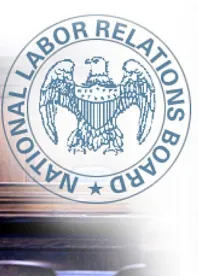As the dust settles from the many events over the past few months, the Department of Labor (DOL) and the National Labor Relations Board (NLRB) have been working overtime to enact several new regulations and implement decisions which modify a number of key Obama-era regulations and prior NLRB decisions. As you likely have seen a flurry of blurbs announcing the changes in the regulations and decisions, the following is a summary of all the recent changes enacted.
Employers should make note of the recent changes to prepare for workplace environment shifts on the horizon. These changes adjust employer and employee standards in areas such as union elections, the union dues checkoff rule, regular pay rates, work email limitations, and FLSA joint employer status.
1) NLRB Modifies Obama Board’s Election Regulations.
On December 13, 2019, the NLRB finalized its rule to reverse aspects of Obama-era regulations that speed up the union election process. The new rule provides employers more time to present objections to a vote and extends the timeline on any objections. The NLRB stated its changes to the rules are in place to ensure “expeditious elections that are fair and efficient.”
2) NLRB Concludes McDonald’s Is Not a Joint Employer.
On December 12, 2019, the NLRB reviewed whether McDonald’s had enough control over its franchisees to be deemed a joint employer. If the NLRB determined McDonald’s was a joint employer, then McDonald’s could be liable for infractions committed by franchisees and also be pressured to collectively bargain with the franchise employees. The employees alleged the franchises committed unfair labor practices, including discharges, suspensions, reduction of hours, surveillance, threats, promises of benefits, and interrogation. Historically, the NLRB has not held franchisors to be joint employers with their franchisees. In the present matter, the NLRB held with its precedent and determined that McDonald’s was not a joint employer.
3) Department of Labor Expands Regular Rate Pay.
On December 12, 2019, the U.S. Department of Labor issued a final rule allowing employers to offer certain additional perks and benefits to employees without impacting the employee’s regular rate. This is the first significant update to the regular rate regulations under the Fair Labor Standards Act (FLSA) in over 50 years. This rule explains which perks and benefits must be included in regular rate of pay, as well as those perks and benefits that may be excluded from regular pay. The following is a list of the perks and benefits that may be offered to employees without additional overtime liability:
-
The cost of providing certain parking benefits, wellness programs, onsite specialist treatment, gym access and fitness classes, employee discounts on retail goods and services, certain tuition benefits (whether paid to an employee, an education provider, or a student-loan program), and adoption assistance;
-
Payments for unused paid leave, including paid sick leave or paid time off;
-
Payments of certain penalties required under state and local scheduling laws;
-
Reimbursed expenses including cellphone plans, credentialing exam fees, organization membership dues, and travel, even if not incurred “solely” for the employer’s benefit; and clarifies that reimbursements that do not exceed the maximum travel reimbursement under the Federal Travel Regulation System or the optional IRS substantiation amounts for travel expenses are per se “reasonable payments”;
-
Certain sign-on bonuses and certain longevity bonuses;
-
The cost of office coffee and snacks to employees as gifts;
-
Discretionary bonuses, by clarifying that the label given a bonus does not determine whether it is discretionary and providing additional examples, and;
-
Contributions to benefit plans for accident, unemployment, legal services, or other events that could cause future financial hardship or expense.
The rule also clarifies the type of bonuses that are discretionary and may be excluded from an employee’s regular rate of pay. Further, the Department increased flexibility regarding “call-back” pay allowing it to be excludable from a regular rate of pay even if it is not “infrequent and sporadic.” However, the call-back pay cannot be so regular that it is essentially prearranged. Last, the Department updated its basic rate calculation. The update allows employers to change the current $0.50 limit to 40% of the higher of the local, state, or federal minimum wage. The rule went into effect on January 15, 2020.
4) NLRB Union Dues Checkoff Rule.
On December 16, 2019, the NLRB determined that employers may unilaterally stop deducting union dues from workers’ paychecks once a collective bargaining agreement expires. This ruling reverses the Obama-era decision that required employers to continue deducting dues even after a union contract expires and restores precedent dating back to 1962. The ruling provides additional leverage to employers during negotiations and bargaining with unions.
5) Employers May Forbid Workers from Discussing Pending Investigations.
On December 17, 2019, the NLRB reversed an Obama-era decision and determined that work rules requiring confidentiality during workplace investigations are presumptively lawful. The Obama-era decision required employers to determine whether its interests in confidentiality during an investigation outweighed an employee’s “concerted activity” rights. Moving forward, employers can require investigative confidentiality limited to the duration of the investigation. In its decision, the NLRB noted that confidentiality assurances protect both employers and employees during an ongoing investigation.
6) Employers May Ban Work Email for Non-Work Purposes.
On December 17, 2019, the NLRB restored an Employer’s right to limit employee use of an email system for union organizing, so long as it is on a nondiscriminatory basis. The recent decision reverses the Obama-era decision that granted an employee a presumptive right to use the email system on non-working time for any communications under Section 7, broadly interpreting the protected right to concerted activity. The current decision states that employers have a right to control the use of their email and IT systems regarding any non-work-related communications. However, employers must only restrict in a way that does not discriminate against union or other protected concerted actions.
7) Department of Labor Issued Final Rule Updating Joint Employer Regulations.
On January 12, 2020, the Department of Labor issued its final rule addressing joint employer status under the FLSA. The regulations primarily focus on two scenarios when an employee might have one or more joint employers. The first situation occurs when an employee has an employer who suffers, permits, or otherwise employs the employee to work, but another individual or entity also benefits from that same work. The second situation occurs when an employer employs an employee for one set of hours in a workweek, and another employer employs the same employee for a separate set of hours in the same week. The regulations set forth a four-factor balancing test to determine whether the potential joint employer is directly or indirectly controlling the employee and whether the employer:
-
Hires or fires the employee;
-
Supervises and controls the employee’s work schedule or conditions of employment to a substantial degree;
-
Determines the employee’s rate and method of payment and;
-
Maintains the employee’s employment records.
The rule also sets forth factors that are not relevant to the determination of FLSA joint employer status, such as whether the employee is economically dependent on the joint employer and whether the employer is operating as a franchisor or entering into supply agreements. The DOL’s final rule provides additional examples to assist employees and employers in the determination of whether a joint employer exists.




 />i
/>i

